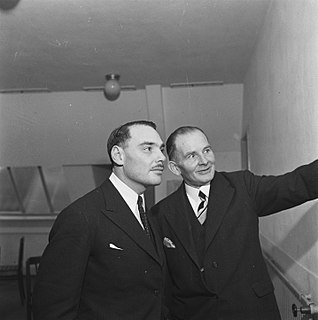A Quote by Oliver Tambo
Racial discrimination, South Africa's economic power, its oppression and exploitation of all the black peoples, are part and parcel of the same thing.
Related Quotes
In South Africa, being Chinese meant I wasn't white and I wasn't black. I trained in Baragwanath Hospital, the largest black hospital in South Africa. That was around 1976, the time of the Soweto Uprising, when police fired on children and students who were protesting. I was part of the group of interns who volunteered to treat them.
Taking the continent as a whole, this religious tension may be responsible for the revival of the commonest racial feeling. Africa is divided into Black and White, and the names that are substituted- Africa south of the Sahara, Africa north of the Sahara- do not manage to hide this latent racism. Here, it is affirmed that White Africa has a thousand-year-old tradition of culture; that she is Mediterranean, that she is a continuation of Europe and that she shares in Graeco-Latin civilization. Black Africa is looked on as a region that is inert, brutal, uncivilized - in a word, savage.
Africa shares with Asia a common background of colonialism, of exploitation, of discrimination, of oppression. At Bandung, African and Asian States dedicated themselves to the liberation of their two continents from foreign domination and affirmed the right of all nations to develop in their own way, free of any external interference.
The notion of travelling to far places in order to study alien peoples and cultures, is unique to Western man; it springs from the predatory genius of the Greeks; no primitive peoples have ever come to study us. This is, on the one hand, a disinterested, intellectually inspired impulse. It is one of our glories. But it is, on the other, part and parcel of exploitation. [] The Western obsession with inquiry, with analysis, with the classification of all living forms, is itself a mode of subjugation, of psychological and technical mastery.
It is considered in England and the United States that the Government of South Africa is altogether too harsh with its native peoples. It is sadly humorous to notice that the native in South Africa, however, holds an exactly reverse opinion and the fault he finds with the South African Government is that it is far too lenient in its administration of laws throughout the native populace.
The black middle-class in America is a prosperous community that is now larger in absolute terms than the black underclass. Does its existence not suggest that economic adversity is the result of failures of individual character rather than the lingering after-effects of racial discrimination and a slave system that ceased to exist well over a century ago?


































